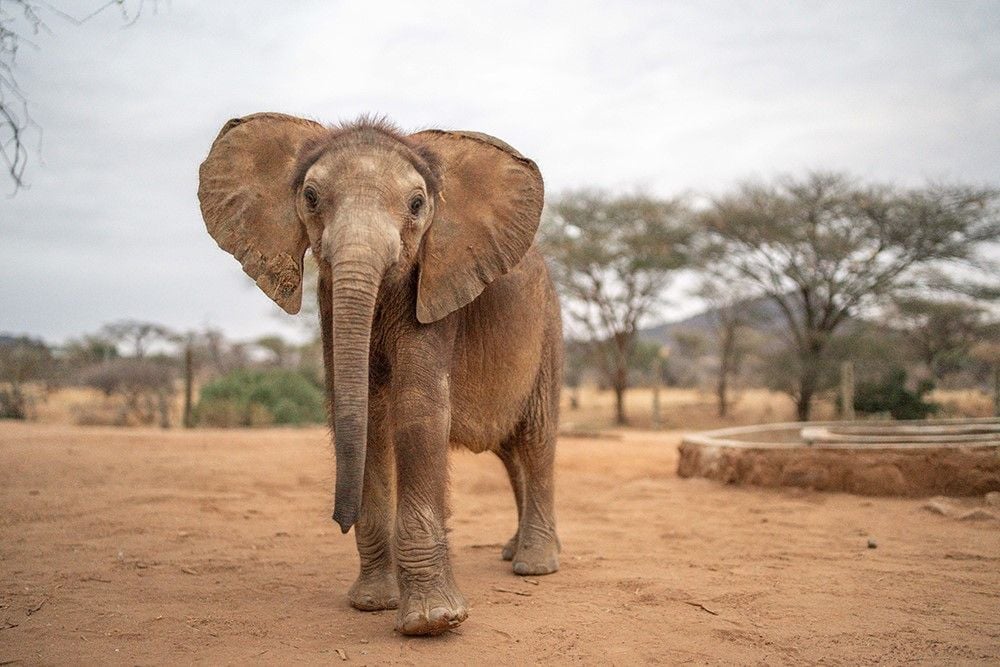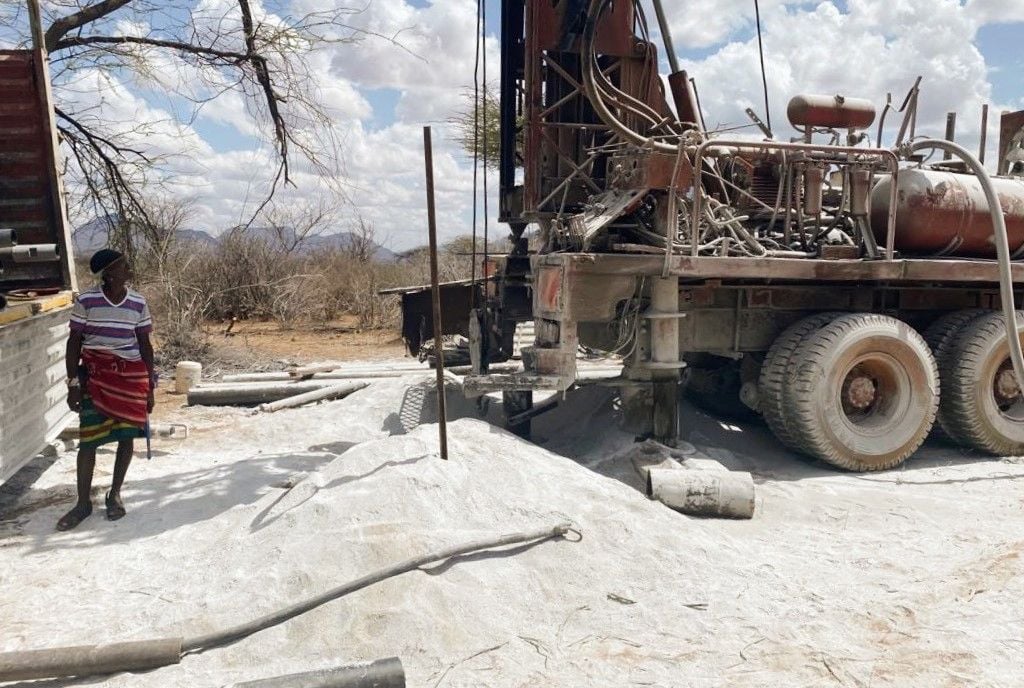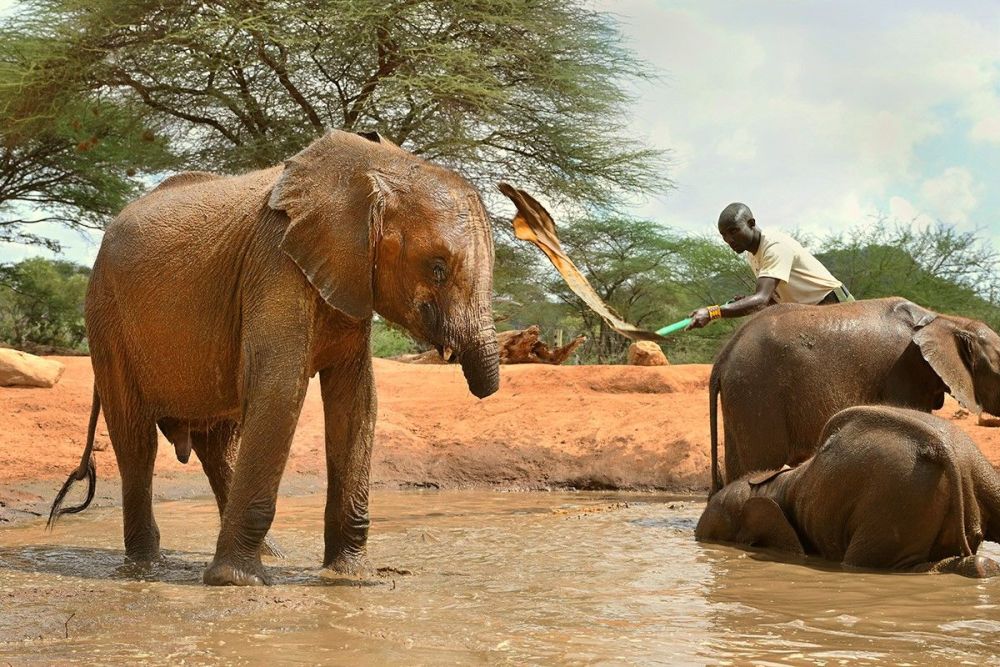EXCITING NEWS October 2023 - Read on!
There's very exciting news from Reteti this October. They are about to have their fourth release in 7 years of elephants, into the wild! This is a huge achievement, not only for the keepers who have done so much to care for the elephants - but for the elephants themselves, who arrived with the odds stacked against them.
13 elephants will be released into two carefully selected, Kenya Wildlife Service-approved release sites within Namunyak Conservancy – where Reteti is located too. Not only that, the keepers will have make-shift accommodation so that they can look after the elephants as they get used to being in the wild. And Reteti's partners, Save the Elephants, will monitor them too.
Read all about it here.
UPDATE April 2023 - The Borehole Project
There's good news from the Reteti Elephant Sanctuary in Kenya with their borehole project.
Firstly, the drilling team have hit water in their borehole after drilling 256 metres. This has two important results: the Sanctuary has the start of a reliable, permanent water source for orphaned elehants, and it will enable the re-wilding of orphans directly from the sanctuary and into the Namunyak Conservancy. Wild elephants will come to the water and that will mean the orphans can interact with them daily, leading to their slow and steady ingegration into the wild, either with new herds or as an orphan herd! Read their blog about it here
Secondly, it's rained! The elephants were out on a walk when the April rains arrived - hooray!
Late September 2023
Meet Naisimari, the newst and smallest member of the Reteti Foster Family!
She is particularly fluffy and hairy.
Reteti rescued her when she fell into a well...

Why not adopt her, and support the work of the Reteti Elephant Sanctuary?
Adopt Naisimari here. |
Introducing the Reteti Elephant Sanctuary's borehole project
The Reteti Elephant Sanctuary is based in Kenya and it takes in orphaned and abandoned elephant calves. The aim is to release them back into the wild herts adjoining Retiti.
The keepers caring for the elephants have all been trained in the care, rehabilitation and release of elephant calves. They are recruited from the Namunyak Conservancy and they all have a deep respect for elephants. You can meet some of the keepers here.
You can meet some of the elephants here – they are orphaned or abandoned because of drought, man-made wells, human-wildlife conflict and natural mortality. It was the local community who wanted the Sanctuary.
The background...
Help the Reteti Elephant Sanctuary Build a Borehole
The Reteiti Elephant Sanctuary is trying to Build a Borehole which can give the elephants it cares for a supply of water, even during the driest of seasons.
Help Build a Borehole here
The sanctuary uses 20,000 litres of water a day and it has been acquiring this water from a spring in the Matthews Mountains through a pipeline of 16 kilometres that the Sanctuary has built.

However, with the help of hydrology experts, the Sanctuary has identified an aquifer close to the sanctuary which is suitable for a borehole. They’ve drilled 200m already and need to drill to a depth of 250m to reach the water table. The pipeline only has to be 1.5 km long to reach the Sanctuary from the borehole.
The cost of implementing all of this is just over $20,000 American dollars for the drilling and $18,246 for the pump and pipeline. The Sanctuary is currently short by $6,294 dollars so it is asking for contributions so that the project can be done for the elephants.

Please help the Sanctuary give the elephants a sustainable source of water!
They are so close!
Image ©LouAnne Brickhouse
The Sanctuary wants to establish a permanent, sustainable way to ensure the elephants have the water they need.
You can also help by
- Adopting an elephant – adoptions are for a year.
- Gifting them a bottle of milk - the video shows how much they adore it! Each elephant drinks about 8 bottles of milk a day, generally goats milk. The elephants have a feed about every 3 hours and between feeds, the keepers take them on bush walks so that they can learn to browse, navigate and get used to the landscape.
- Donate
- Visiting the Sanctuary!
- As always, spreading the word about it.
Visit the Reteti Elephant Sanctuary's website here



